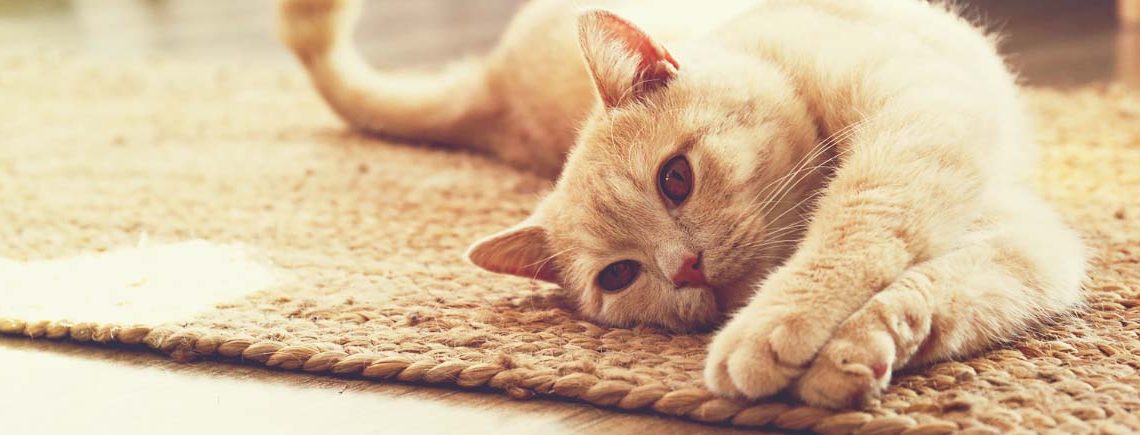5 Ways To Care For Your Senior Cat’s Mental Health
As cats grow older, they may experience some behavioural changes such as forgetting where their litter box is or being less active. As a cat owner, it’s important to keep an eye on these changes and assist your cat in any way they need as they grow into the senior lifecycle.
In this blog, we will discuss how you can enrich your cat’s mental stimulation to not only keep their mind sharp, but also increase their sense of wellbeing, thus leading to a healthy senior kitty!
1. Plenty of Play
Regular exercise is an important element of a healthy life, especially as your cat begins to age. It aids balance, mobility, mental agility, and sustaining a healthy weight. Not only does it help their physical wellbeing, but it can help stimulate their mental wellbeing also.
Chase toys are a great way to keep your cat entertained; pouncing, grabbing onto, or simply swiping at the toy with their paws is an effective way to keep your cat active and entertained. Stimulation and brain games are more important than ever in the senior years, as, just like humans, cats can suffer a decline in mental function as they get older. Keeping playtime interactive with a laser toy (just be careful not to point the laser in your cat’s eye) or a toy that omits sounds such as M-PETS Dizzy Cat Toy can keep boredom at bay and provide plenty of stimulating entertainment.
When playing, always go at your cat’s pace and don’t overdo playtime as she may injure herself. Exercise in bursts of ten minute periods before relaxing and letting her take a break.

2. Supply of Scratchers
Multi-tiered cat scratchers provide your kitty with lots of options for climbing, jumping, and playing. Having multiple scratching pads around the house can be a great way to encourage older cats to exercise their body and mind on a regular basis. Keeping your cat entertained and comfortable is a fantastic way to keep their minds healthy as they age, and scratchers are sure-fire way of achieving just that.
When choosing a cat scratcher, make sure to pick one that is big enough for your cat stretch her whole body. Your cat will want a good scratcher she can sink her claws into. Most cats love the texture of sisal, a fibrous rope made from the agave plant. It doesn’t catch onto cats’ claws, and is extremely durable—no matter how hard your cat will scratch!
3. Minimise Stress
Older cats are often more sensitive to anxiety and stress. Stress is not only emotionally challenging for your cat, but it can also trigger a number of medical conditions such as urinary and respiratory infections, making it essential to diminish anxiety triggers as much as possible for your cat.
Some tips on reducing stress for your senior cat are…
- Keep multiple litter boxes throughout the home and don’t change their litter; cats tend to be picky about their litter, and a sudden change can lead to them avoiding their litter box altogether.
- Keep cat scratchers, bowls, litter boxes and beds accessible. Senior cats tend to develop muscle and joint problems as they age, so if these essential resources are too difficult for them to reach, they can become extremely stressed. Try keep everything on the ground floor if your cat struggles to get up the stairs and make sure scratchers and posts have multiple steps making them easy to access.
- Make sure your cat has a quiet, safe spot to retreat to. This behaviour derives from their hunting days, where a cat might search for a hiding spot or “den” for protection from other predators and to have a clear view for stalking prey. Cats like to relax in these quiet dens as it makes them feel safe and secure, and helps reduce stress and anxiety. Beds such as BLUE PAW Cat Cave and M-PETS Snake Pattern Cat Cave on Legs provide shelter for cats who like their privacy.
4. Help with Grooming
As cats age, they may develop joint problems such as arthritis, which is a condition that can be very painful for your cat. When they experience pain moving, they can’t stretch their heads like they once could to groom certain spots. This can cause areas of your older kitty’s coat to become messy, dull and unkempt. It’s important to give your senior cat a helping hand with their grooming routine such as regular brushing (especially if they have a long coat), bathing, and nail trimming. For a full step-by-step on how to groom your cat, see our blog post here.
5. Invest in a Good Bed
A good supportive bed with a cushioned base allows your cat to curl up and sleep, while also helping to support arthritic joints and cradle tired bones. It’s important the bed you choose has a low entry point so your older cat isn’t struggling to get in. High entry point beds such as window or perch beds may not be the best option if your kitty is suffering from arthritis.
Signs of a Mentally Healthy Cat
- Using their litter box frequently and correctly
- Grooming regularly and properly; doesn’t appear to be struggling or excessively licking
- Happy with his environment and frequently plays with toys, uses scratchers/posts, and loves human interaction
- Eats all his food, has a healthy appetite and drinks plenty of water
- Vocal cues-cats tend to be vocal when they’re happy; ahigh-pitched meow is a content cat, while a low-pitched meow may suggest an unhappy or annoyed kitty.
- Your cat’s eyes are very expressive, and sudden dilation of the eyes means they are extremely happy.

